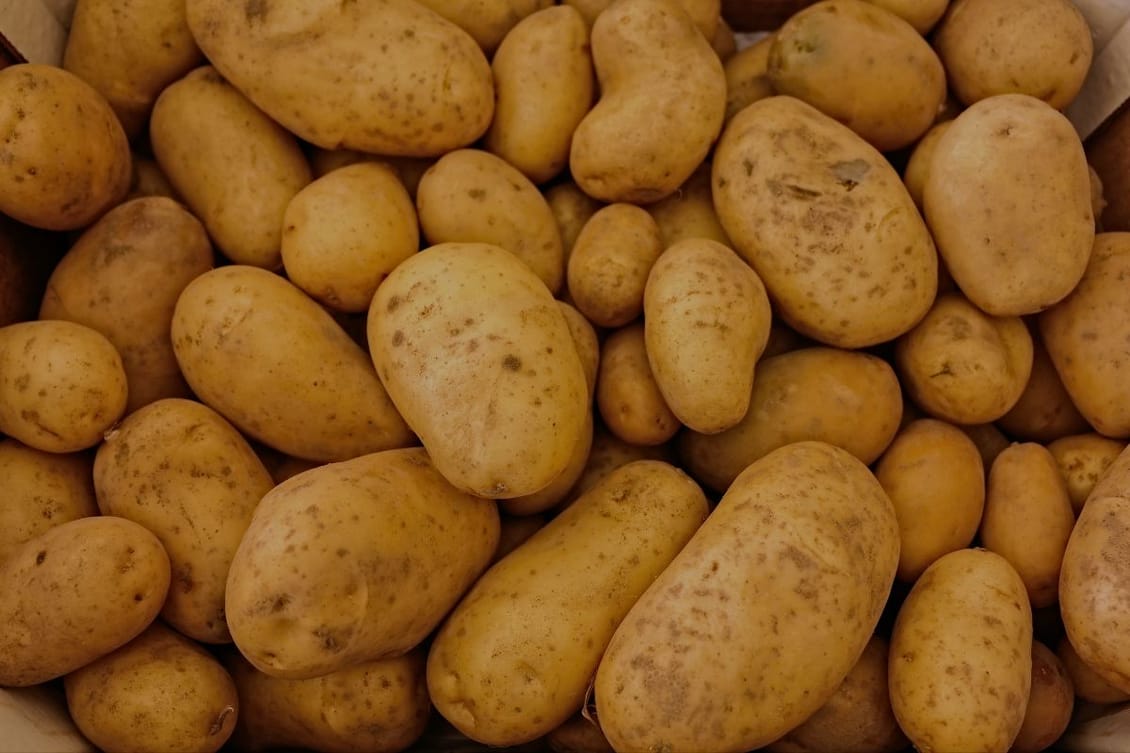
Welcome to The Sauce — our content & insights community, run by global experts. Sink your teeth into stories about food, worth sharing, and receive insights, ideas, opinions, trends, and strategies straight to your inbox.
Keep up with our weekly newsletters on LinkedIn by subscribing here.
Potatoes are an important part of diets around the world – not only as a vegetable in their own right, but as a dependable side dish and an ingredient in loads of different potato-based snacks. But potatoes have a problem: they’re not easy to store.
They can be stored at cold temperatures – but this triggers the conversion of sucrose in the potato into fructose and glucose, which result in a bitter taste when cooked.
Or they can be stored at slightly higher temperatures, of around 50°F; but this means they’ll start to sprout tubers within two or three months, then begin to rot.
At Michigan State University (MSU), researchers have worked out how to silence the gene that produces the enzyme that reacts to external temperature – so the engineered potato, known as Kal91.3, can be stored at cold temperatures without converting sucrose into fructose and glucose.
In an interview with Bakery & Snacks, Professor Dave Douches (potato breeder at MSU) said: “Breeding potatoes is quite challenging because we need so many important traits to line up, but in this case, we just needed one trait to correct the problem.”
Rather than gene editing, this is genetic engineering – putting the gene into a specific orientation within the DNA that signals to the potato that the gene won’t work as well as it should. And effectively, this leads to that gene being silenced.
For the people responsible for storing large volumes of potatoes, this could be a game-changer.
It enables them to store the potatoes at colder temperatures for longer, without compromising on the quality of the product. And this means their potatoes will be healthier, tastier, and more consistent – as well as reducing waste and cutting spoilage costs.
Increased shelf stability could also open up the possibility of selling into new markets, as potatoes can be shipped at optimal temperatures and maintain their nutritional value and taste.

Potatoes are one of the food ingredients most at risk from climate change right now. The crop is sensitive to temperature changes, along with pests and potato-specific viruses that are on the rise as the environment warms.
Farming practices that cause soil exhaustion and degradation through monocrop growth and the use of harsh chemicals are also making it harder to grow potatoes, which need the right conditions and nutrients to thrive.
So the potato storage problem is urgent: we need to be able to keep potatoes for longer once they’ve been harvested, to ensure supply chains for a wide range of potato-based products are protected.
Originating from the Andean highlands, potatoes are rich in…
…and they have a particularly good amino acid balance.
If you eat one medium-sized potato, you’re consuming about half of the daily vitamin C requirement for an adult; and a boiled potato contains more protein than maize.
And the potato is an important source of income for underprivileged communities in a number of developing countries.
According to the Alliance for Potato Research and Education, more than a billion people around the world eat potatoes. They’re grown in an estimated 125 countries, and the total crop production globally exceeds 300 million metric tonnes.
Mark your calendars for our next newsletter on 11 October 2024. Is there anything specific you'd like to see covered? We'd love to hear from you! Click here to share your suggestions.
Take your seat at the InFlavour table, a government-backed and world-leading B2B food event by Tahaluf.
E-mail address SubmitWant to keep up to date with all our latest news and information? Enter your name below to be added to our mailing list.
E-mail address Submit